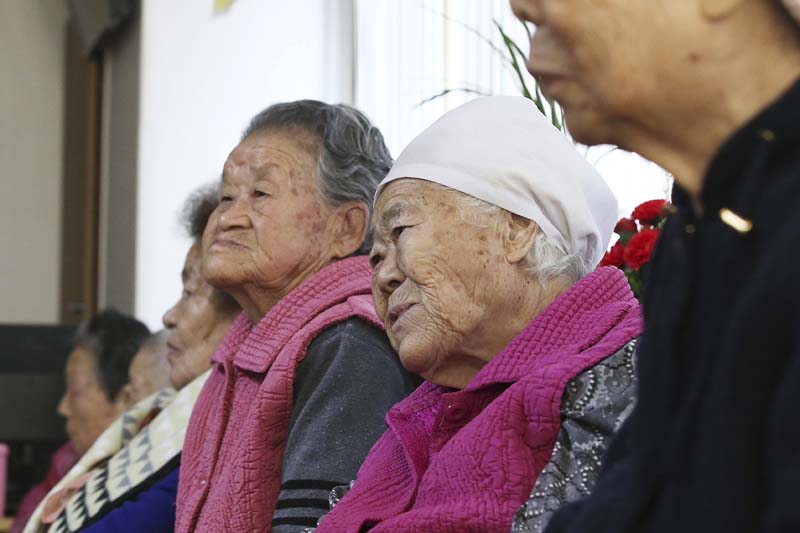2 SKorean ex-sex slaves demand direct apology from Japan PM
TOKYO: Two elderly South Korean women abused by Japan's wartime military-run brothel system are in Japan to reject a recent settlement agreement between the two governments and demand that Prime Minister Shinzo Abe give them a face-to-face apology and formal compensation.
Lee Ok-sun, 88, and Kang Il-chul, 87, told reporters Tuesday that the agreement neglected the victims' feelings and was "wrong."
They are among tens of thousands of Asian women sexually abused in Japan's military-run brothel system during World War II. Lee and Kang were forcibly sent to China when they were teenagers in the early 1940s and could not return to their homes until decades later.
Lee and Kang said neither government had asked their opinion ahead of the agreement, which they said was a clear sign they were disregarded. They noted that Abe had not directly apologized to them in his own words, and that Japan stated that its pledge in the agreement to set up a fund was not compensation but for humanitarian purposes.
Lee and Kang now live at a private shelter, the House of Sharing, with eight other victims. Of the 238 South Korean women who were formally recognized as victims of Japan's wartime sex abuse, only 46 are still alive — most of them in their late 80s and 90s.
The director of the shelter, Ahn Shin-kwon, who accompanied the two on their trip, said the group requested a meeting with Abe and other government officials, but that it is unlikely to take place.
"Not only has Abe not apologized but he hasn't even tried to meet us," Kang said angrily, sitting next to Lee. Both were in wheelchairs. "Why doesn't he come out and apologize? We want him to meet us face to face," she said.
Kenko Sone, a spokesman at the Prime Minister's Office, said there is no immediate plan for Abe to meet with the two women during their visit, or other so-called wartime "comfort women" in the future.
The December agreement included an indirect apology from Abe and a Japanese pledge to provide 1 billion yen ($8 million) to a fund for the South Korean victims.
Japan in 1993 acknowledged forcing women into military brothels, often by deception and sometimes by physical force. The government set up a private fund in 1995, but that was not seen as sincere by some, especially in South Korea.
The women said they suffered repeated violence by Japanese soldiers, especially when they tried to escape from the brothels. Even today, they are scared of men in military uniforms, even those on TV, Ahn said.
"Comfort women were not treated as human beings. We were considered objects given to soldiers," said Kang, taking off her pink knit cap to show a head injury inflicted by a Japanese soldier. She then wept silently.
With time running out, the women are frustrated.
"We were forcibly taken (to military brothels) and came back full of scars. We were stabbed with swords, whipped and beaten. We fell ill and we shed blood. And yet Mr. Abe has ignored us victims, hiding from us," Lee said. "It seems as if he is waiting until all the victims are gone. But we will never die."






